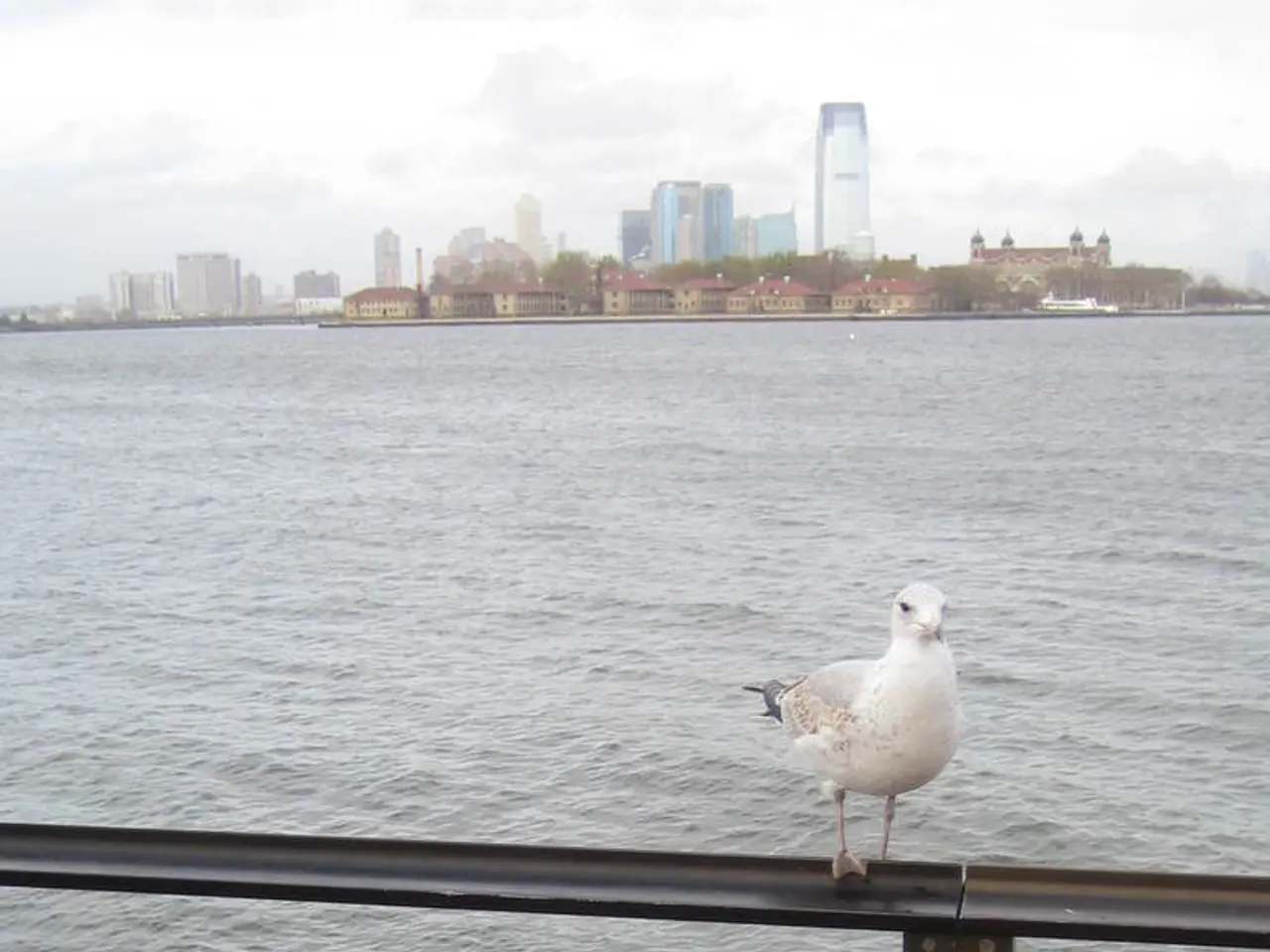Clear those cluttering garden leaves: Discover why maintaining a mess of leaves isn't necessarily a chore
Gardens around the world often feature mulch, a popular choice for enhancing aesthetic appeal. But did you know that leaving fallen leaves in your garden can offer numerous benefits for both wildlife and soil health?
A well-known ecological horticulturist, Rebecca McMackin, based in New York, emphasizes the importance of this practice. Leaving leaves can make a garden look wild or unkempt, but strategies can be used to give a clean look while still providing essential habitat for a variety of creatures.
For wildlife, fallen leaves serve as a valuable resource. Insects such as beetles and woodlice, which play crucial roles in food webs, often rely on the structural complexity of the leaf layer for hunting and hiding. Many invertebrates overwinter under leaf litter, serving as food for birds and small animals. Leaves and dead plant material provide shelter and nesting resources for native bees, birds, and small mammals. Leaving leaves supports vertical habitat layers in the garden, enhancing biodiversity by catering to different wildlife niches.
Bumblebees, moths, butterflies, and other insects often rely on the leaf litter for habitat, including overwintering, egg-laying, caterpillar development, and pupation. Some butterflies, like the purple hairstreak and elephant hawk moth, spin their cocoons under fallen leaves. By creating more habitat for insects, gardeners can attract birds who rely on them into their gardens as well. This practice is called the 'garden mullet'.
For soil health, leaves act as natural mulch that suppresses weeds and prevents soil compaction, especially from winter rains. As they decompose, leaves boost soil fertility by adding organic matter that improves soil structure, aeration, and moisture retention. Leaf litter contributes to carbon sequestration, helping mitigate climate change by storing carbon in the soil.
While leaves are generally beneficial, heavy piles near slug-prone plants (e.g., hostas) may encourage pests and can be managed accordingly. Diseased plant material should not be left on the ground or composted to avoid spreading disease.
In more formal environments, the first foot or two of duff along the front of a garden bed is often removed, and a clean line of mulch is made. However, the rewilding movement is spreading, promoting naturalistic gardens that embrace fallen leaves. In the USA, there's a popular movement called 'leave the leaves'.
Sitting in the garden and observing the animals that share the land can be a strategy to address climate change and biodiversity decline. Gardeners can co-exist better with plants and animals by making their gardens mimic natural environments. As horticulturist Piet Oudolf stated, Americans tend to display mulch in their gardens, but leaving fallen leaves can create a more natural and biodiverse garden.
So, next time you're raking leaves away, consider the benefits of leaving them in your garden. Embrace the 'garden mullet' for a healthier, more resilient, and biodiverse garden.
References:
- Butterfly Conservation
- RHS
- Nature.com
- BBC Gardeners' World
- Soil Association
- Rebecca McMackin, an ecological horticulturist based in New York, advocates for leaving fallen leaves in gardens to support a variety of wildlife and enhance soil health.
- Leaving leaves benefits wildlife by providing shelter and resources for overwintering invertebrates, native bees, birds, and small mammals.
- For soil health, leaves decompose to create natural mulch, suppress weeds, prevent soil compaction, and enhance soil fertility.
- By embracing the 'garden mullet' (leaving leaves in the garden), gardeners can help mitigate climate change through carbon sequestration.
- Adopting a more naturalistic gardening style that includes leaving fallen leaves can contribute to a healthier, more resilient, and biodiverse garden, as advocated by horticulturist Piet Oudolf.




